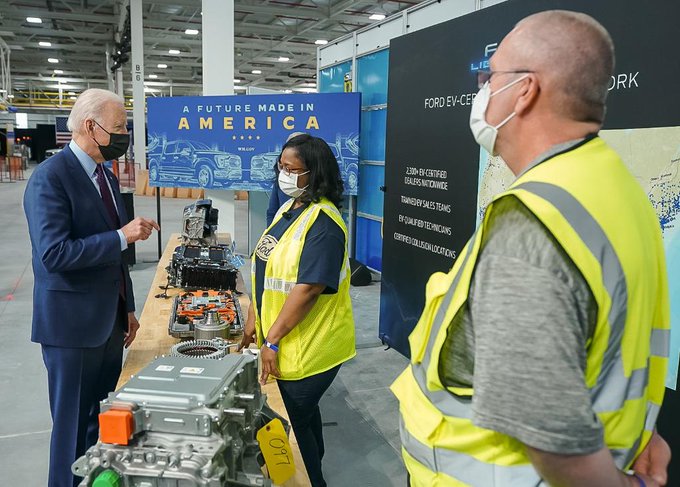Have a story idea
Have a story idea? Send it to us here.

Source : The White House
June 8, 2021
Author : Patty Rodriguez
As the White House Fact Sheet notes, the United States federal government “is the largest consumer of goods in the world.” By ramping up procurement from minority-owned businesses, the Biden Administration aims to put its money where its mouth is.
They go on to note that currently, just 10 percent of the federal governments’ total eligible contracting dollars go to Small Disadvantaged Businesses (SDBs), considered to be small businesses owned by minorities. The statement does not mention women or veteran-owned businesses.
The move came on the heels of the 100-year anniversary of the Tulsa massacre, an event in which a wealthy African American business district was mobbed and looted.
The goal, according to the White House, is to “help more Americans realize their entrepreneurial dreams and help narrow racial wealth gaps. In 2019, for instance, the gap in business ownership between Black and Latino households, relative to White households, accounted for 25 percent of the overall racial wealth gap between these groups.”
More specifically, the White House wants to increase the share of contracts to SDBs by 50 percent by the year 2026, which they say would pump $100 billion into such businesses. Because the President is the head of the executive branch, such a move from federal agencies would face few obstacles.
Other measures in the fact sheet are less straightforward, like the call for the investment of $10 billion into the Community Revitalization Fund, a project of the Department of Housing and Urban Development. That funding proposal is a part of the American Jobs Plan, better known as Biden’s infrastructure proposal, and it would require Congressional approval.
Another addendum to the American Jobs Plan included in the White House’s statement is $15 billion for grants and technical assistance for local authorities to plan, remove, or retrofit transportation infrastructure “that creates a barrier to community connectivity, including barriers to mobility, access, or economic development.”
Meanwhile, the White House is also calling for $31 billion for small business programs to connect disadvantaged business owners with mentoring, networking and technical assistance to help secure federal contracts and “participate in federal research and development investments.”
Category : Disadvantaged Business Enterprises Minority Business Enterprises Small Business Enterprises Contractor Trades Diversity Outreach Federal Government Procurement
